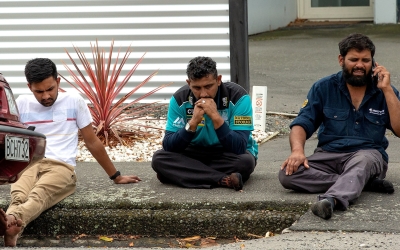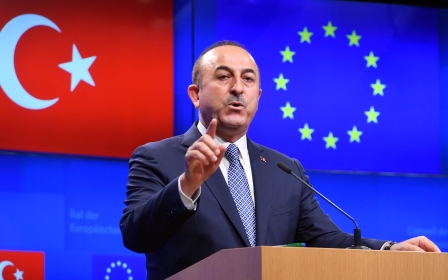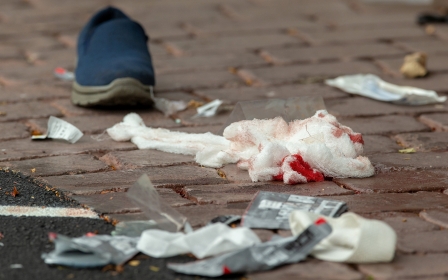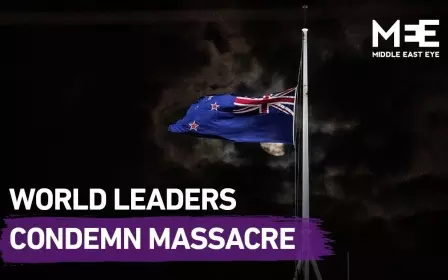New Zealand mosque attack survivors describe tales of heroism amid scenes of chaos
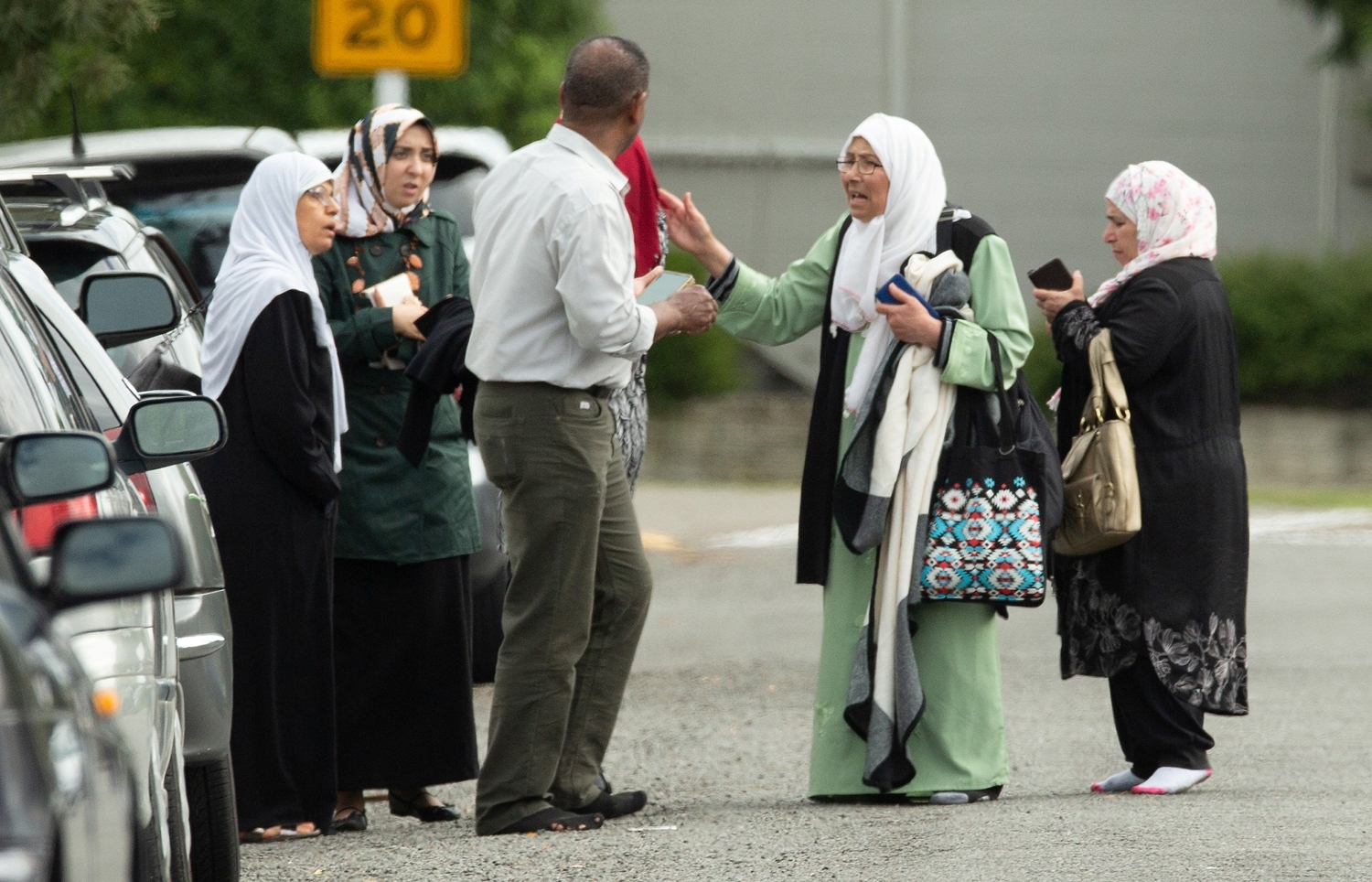
As news of the New Zealand mosque attacks that killed 49 people unfolded, the country's media outlets published tales of heroism and horrific scenes from witnesses who survived the ordeal orchestrated by a suspected white supremacist.
One of the survivors told the New Zealand Tribune on Friday that a member of the Linwood mosque pounced on the shooter and wrestled away his weapon.
"The young guy who usually takes care of the mosque ... he saw an opportunity and pounced on [the gunman] and took his gun," Syed Mazharuddin said.
"The hero tried to chase and he couldn't find the trigger in the gun ... he ran behind him but there were people waiting for him in the car and he fled."
A different witness described chaotic scenes at Masjid Al Noor, the mosque where the majority of deaths took place.
"This guy, this terrorist guy, [stood] maybe [for] two minutes. After that he was shooting everyone, everyone - young people, old women," Khaled al-Nobani told the New Zealand Tribune.
"He shot the first one on the gate, two people in the corridor, and [went] inside [and] started shooting everyone."
Nobani criticised the amount of time it took for police to arrive on the scene.
"The police also took 20 minutes to come. We are in the middle of the city," he said.
"The middle of Christchurch - 20 minutes the police took to come. There was no traffic about. You need two minute [maximum] response."
Another Linwood survivor told the New Zealand outlet stuff.co.nz that people continued to pray at the mosque during the shooting.
"I didn't know what a gun sounded like. It is customary when we are praying not to pay attention to the outside world ... gunshots kept happening and people kept praying," Farhaan Farheez said.
The dead and missing
Those killed or missing from the mosque attacks include Jordanians, Malaysians, Indonesians, a Saudi, people of Pakistani and Indian origin, Syrian refugees and a Palestinian, several news outlets, advocacy groups and government agencies reported on Friday.
Malaysia’s foreign affairs ministry tweeted that two of its citizens were killed and the high commissioner of India to New Zealand said nine people of "Indian nationality/origin" were missing.
Of ~ 100 Victims in #Christchurch Terror:
— Joyce Karam (@Joyce_Karam) March 15, 2019
• 2 Jordanians killed, 8 injured
• 1 Saudi killed
• 1 Palestinian at least killed
• 5 Pakistani Origin missing
• Egypt checking
• Unconfirmed reports on Syrian casualties
The group Syrian Solidarity New Zealand said in a Facebook post that some Syrian refugees were shot, but it stopped short of giving a precise number.
The foreign ministry in Jordan said that Khaled Haj Musatafa was killed in the attack, according to an Arab News report. One of his sons is reported missing, according to an ICRC-managed site that lists the names and identities of some of the people who remain missing.
The site managed by International Committee of the Red Cross (ICRC) has also identified almost 100 missing people from the attacks, including some born in New Zealand, Afghanistan, Egypt, Pakistan and Bangladesh.
Attack fuelled by white supremacy
New Zealand police have arrested four people in connection with the attacks, which media reports suggest were orchestrated and carried out by a man with an assault rifle who broadcast live footage of the shootings online. The man also published a manifesto on the internet in which he claimed to be acting in order to preserve the white race.
The suspected mosque attacker is believed to be behind a 74-page document titled "The Great Replacement" in which he describes himself as a 28-year-old Australian male.
He also writes that his reasons for carrying out the attack include revenge for "hundreds of thousands of deaths caused by foreign invaders in European lands throughout history" and the alleged enslavement of "millions of Europeans" by Muslims.
Middle East Eye delivers independent and unrivalled coverage and analysis of the Middle East, North Africa and beyond. To learn more about republishing this content and the associated fees, please fill out this form. More about MEE can be found here.


